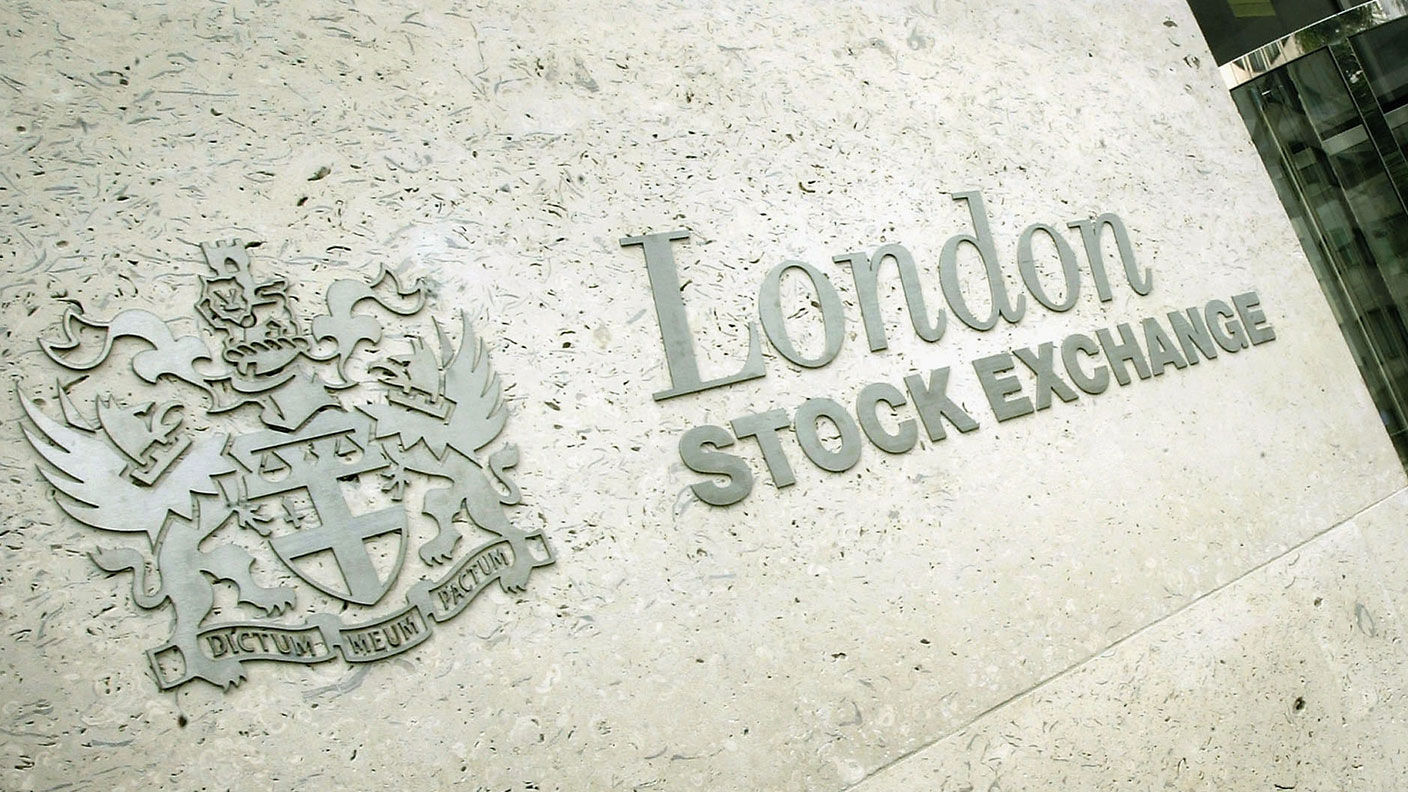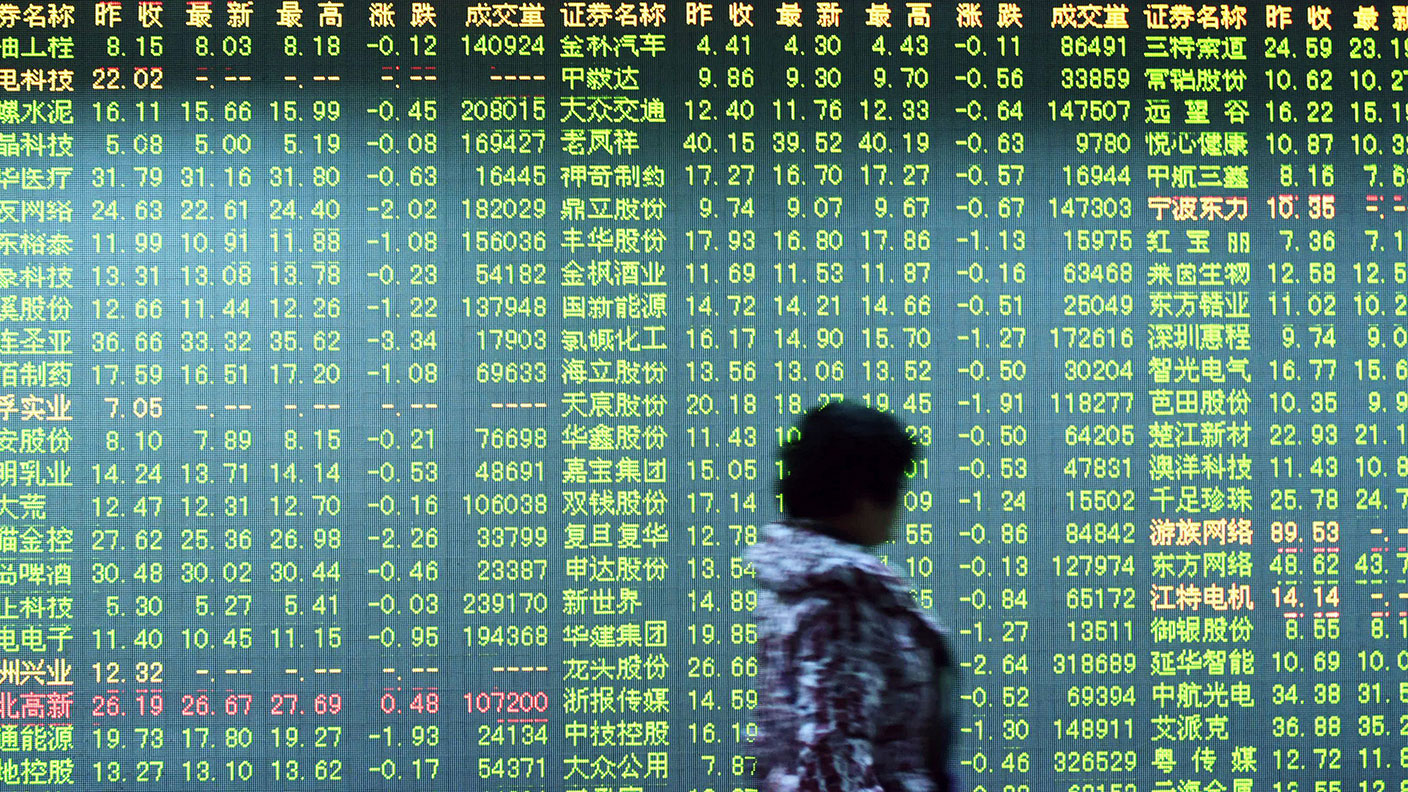Three funds to buy to get exposure to oil
One of the best ways to gain exposure to emerging-market growth is through an oil play, says Paul Amery. Here, he tips three London-listed exchange-traded funds to buy now.

Get the latest financial news, insights and expert analysis from our award-winning MoneyWeek team, to help you understand what really matters when it comes to your finances.
You are now subscribed
Your newsletter sign-up was successful
Want to add more newsletters?

Twice daily
MoneyWeek
Get the latest financial news, insights and expert analysis from our award-winning MoneyWeek team, to help you understand what really matters when it comes to your finances.

Four times a week
Look After My Bills
Sign up to our free money-saving newsletter, filled with the latest news and expert advice to help you find the best tips and deals for managing your bills. Start saving today!
When Apple's rapid share-price decline caused it to lose its spot as the world's largest firm, one London-based executive at a multinational quipped: "The usurpers have lost and an oil company is back in its rightful position." Exxon Mobil had regained first place. For investors, it's worth remembering why 'Big Oil' is never far from the top.
Since the turn of the millennium, Cisco, GE, Microsoft and Apple have had spells as the table-topping share, as did Citi and HSBC before the 2008 crisis. But oil stocks are always thereabouts in the rankings. As well as Exxon Mobil, Chevron, BP, Total, Shell and Schlumberger are also in top 50 positions in the MSCI World index (which ranks global stocks by market capitalisation).
Oil and gas firms are a staple of equity portfolios, not least because they offer decent yields. The Stoxx Europe 600 oil and gas index, which features the region's major producers, yields just shy of 4% a year, for example. And investing in oil firms is one of the key ways of gaining exposure to the world's faster-growing regions.
MoneyWeek
Subscribe to MoneyWeek today and get your first six magazine issues absolutely FREE

Sign up to Money Morning
Don't miss the latest investment and personal finances news, market analysis, plus money-saving tips with our free twice-daily newsletter
Don't miss the latest investment and personal finances news, market analysis, plus money-saving tips with our free twice-daily newsletter
Energy demand in developing (non-OECD) nations will rise 65% by 2040 from 2010 levels, Exxon Mobil forecast recently. So what's the best way for a European investor to gain exposure to oil and gas stocks via exchange-traded funds(ETFs)?
For those interested in high-yielding European oil and gas stocks, the db x-trackers Stoxx 600 Oil and Gas ETF (LSE: XSER) offers good value. Fees total 0.3% a year, while the fund trades with spreads of 30-35 basis points (0.3%-0.35%) on the London secondary market.
US oil stocks have lower dividends in aggregate: S&P's Energy Select Sector index yields just under 2%. But it offers diversified exposure to the big oil majors. Source's London-listed ETF (LSE: XLES) offers an easy way to invest. The fund charges 0.3% a year and has an average bid-offer spread of around 1%.
For those wanting exposure to globally listed oil exploration firms, the iShares S&P Commodity Producers Oil and Gas ETF (LSE: SPOG) is an obvious choice. It charges 0.55% in fees and usually trades with a bid-to-offer spread below 1%. When dealing in ETFs where US-listed stocks are included in the underlying index, remember you'll get better prices (via tighter spreads) once the New York market has opened.
Paul Amery edits www.indexuniverse.eu, the top source of news and analyses on Europe's ETF and index-fund market.
Get the latest financial news, insights and expert analysis from our award-winning MoneyWeek team, to help you understand what really matters when it comes to your finances.
Paul is a multi-award-winning journalist, currently an editor at New Money Review. He has contributed an array of money titles such as MoneyWeek, Financial Times, Financial News, The Times, Investment and Thomson Reuters. Paul is certified in investment management by CFA UK and he can speak more than five languages including English, French, Russian and Ukrainian. On MoneyWeek, Paul writes about funds such as ETFs and the stock market.
-
 Should you buy an active ETF?
Should you buy an active ETF?ETFs are often mischaracterised as passive products, but they can be a convenient way to add active management to your portfolio
-
 Power up your pension before 5 April – easy ways to save before the tax year end
Power up your pension before 5 April – easy ways to save before the tax year endWith the end of the tax year looming, pension savers currently have a window to review and maximise what’s going into their retirement funds – we look at how
-
 Profit from MSCI – the backbone of finance
Profit from MSCI – the backbone of financeAs an index provider, MSCI is a key part of the global financial system. Its shares look cheap
-
 Ashoka: A new, but reliable, trust you can count on
Ashoka: A new, but reliable, trust you can count onOur investment columnist, Max King, says tough times breed investment trusts like Ashoka, that you can trust.
-
 Should you stick with Mid Wynd investment trust?
Should you stick with Mid Wynd investment trust?Tips Max King looks at the prospects for Mid Wynd as the trust prepares to say goodbye to Simon Edelsten and Alex Illingworth, managers of the trust since 2014.
-
 Analysis: it’s been a terrible six months for investment trusts
Analysis: it’s been a terrible six months for investment trustsAnalysis The first half of the year has not been kind to investment trusts because of their skew towards growth stocks and the global downturn, says Max King. But they will recover.
-
 A core US fund that should be part of every portfolio
A core US fund that should be part of every portfolioAnalysis The UK market’s recovery might not be here to stay. America offers a compelling alternative, says Max King.
-
 Why we’re keeping RIT Capital Partners in our portfolio
Why we’re keeping RIT Capital Partners in our portfolioNews The RIT Capital Partners investment trust has lost 10% so far this year. But its longer term record is exceptional, says Merryn Somerset Webb.
-
 Which investment trusts performed the best in 2021, and what might perform this year?
Which investment trusts performed the best in 2021, and what might perform this year?Analysis After a stellar 2020, last year was disappointing for investment trusts. Max King explains why, and looks at what could do well in 2022.
-
 Five trends for fund investors to watch in 2022
Five trends for fund investors to watch in 2022Advice There is no crystal ball for investment, but these trends could help fund investors prepare for what comes next.
